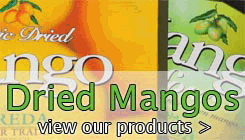
Fair Trade is an organized social movement and market-based approach that aims to help producers in developing countries obtain better trading conditions and promote sustainability. The movement advocates the payment of a higher price to producers as well as social and environmental standards.
Fair-trade has been an important part of my work in life since I first came to the Philippines 40 years ago and today it is more important than ever. It all began when I started a small handicraft basket and rattan chair making project in Olongapo City to help street youth and drug dependents find a self-reliant livelihood and restore their self-esteem.
I went to buy raw materials from the indigenous people of Subic and Botolan in the Provence of Zambales. This was the first Fair-trade project of the Preda Foundation.
The Aeta people of Zambales are the original inhabitants of the Islands but as usual, the colonialists and later the ruling elite exploited them and took their lands, destroyed the rain forest and only left them the mountain peaks where the bulldozers and logging trucks could not reach.
I discovered that the traders of rattan and wicket were not paying the Indigenous People in money instead they had set up barter trade. In return for their cut rattan poles they gave a sack of rice and some canned foods. The rattan was worth ten times more than that. I set up a trading post with the Aeta people, made friends with them and agreed on the just and fair payment that was their right and due. It was our first Fair-trade project. Later we taught them to use their own materials to make baskets and find them a market.
It became a life long relationship and through the Preda foundation we were able to help the Aeta people organize and empower themselves and share development benefits because of Fair-trade. That community was later assisted by Preda to become self-organized, educated and empowered, and in January they won back their rights to their ancestral Domain.
That’s what Fair-trade is all about. It is doing justice for exploited people, creating jobs, providing markets, protecting the environment, building sustainable livelihoods where poor people can enjoy prosperity and end hunger and malnutrition by their own efforts and enterprise. Helping people to help themselves is our motto.
Preda expanded it development assistance to producer groups like scavengers, sewers, craft makers, small farmers, weavers, stone carvers and many more. The project gives interest free production loans and training and access to markets. Fair-trade means giving the producers just wages and dignified and healthy working conditions-this is at the center of fair-trade. It helps protect and improve the environment, promotes organic and chemical free production and is the road to sustainable living. Most products use renewal raw materials and the producers are encouraged to plant the raw materials and harvest them as needed.
Fair-trade brings benefits for the producers but also for the buyers of the products. They join in the struggle to change the unjust trading system. They are making an ethical and moral statement by buying fair-trade products and are in solidarity with the exploited by using their consumer power to help them. The people in Fair-trade and World shops in the developed and developing world do a fantastic work, most are volunteers and they are dedicated to helping educate the public about the causes of exploitation, the injustices of the world trading system and they promote Fair-trade.
Fair-trade is fighting against not only the exploitation of farmers, workers and producers but also against the unjust system that allows the evil to destroy lives of so many. At Preda (www.preda.net) we implement what we call developmental Fair-trade. We campaign to protect the environment, we plant thousands of trees with the farmers, work to stop the trafficking and sale of women and children, provide protection for victims, combat sex slavery and sex tourism and child labor. Developmental fair-trade is putting faith, principles and words into action. It is more that just buying and selling products. It is empowering the people through education and economic development at the village level.
Acting justly and with compassion is at the heart of fair-trade, it is directed to lift the poor out of poverty and give them a decent life based on our respect for human dignity.

